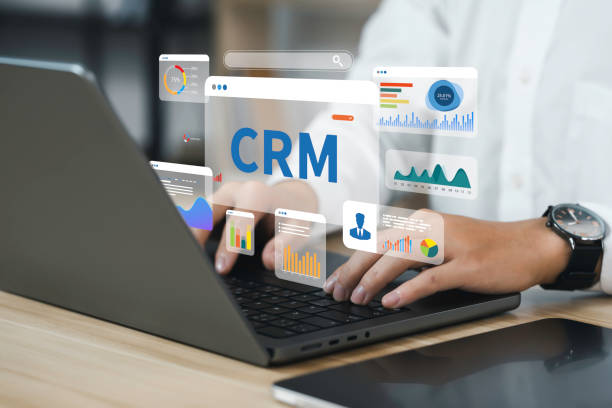
Adopting a powerful customer relationship management (CRM) platform like Microsoft Dynamics CRM can be a game-changer for your business. It’s a tool designed to boost long-term growth, from streamlining sales and marketing to improving customer service and data visibility.
But here’s the catch: your CRM is only as good as the partner who helps you implement and optimize it. Choosing the right partner can increase efficiency, customer satisfaction, and revenue.
With dozens of Dynamics CRM partners in the market, choosing the right one can feel overwhelming. Each promises expertise, industry knowledge, and technical skills, but not all partners fit your unique business needs.
So, how do you narrow down your options? In this post, we’ll walk you through key criteria to help you choose the right Dynamics CRM partner to maximize your investment.
1. Understand Your Business Needs First
Before reaching out to potential partners, take a moment to reflect internally. Understanding your business needs is the first step towards finding the perfect Dynamics CRM partner, who will put you in the driver’s seat of your business’s future.
● Are you implementing Microsoft Dynamics CRM for the first time?
● Do you need to migrate from another CRM system?
● Are you looking for custom workflows or third-party integrations?
● What departments (sales, marketing, service) will use the platform most?
By identifying your objectives and challenges early, you’ll be better positioned to evaluate which Dynamics CRM partners can support your vision.
2. Look for Proven Industry Experience
Not all CRM projects are created equal. A partner who’s helped B2B software companies might not be the best fit for a retail or healthcare provider. Choose a Dynamics CRM partner with experience in your industry—they’ll already understand your typical customer journeys, compliance requirements, and operational workflows.
Ask potential partners:
● Do you have case studies or references in our industry?
● Can you demonstrate how you’ve solved similar business challenges?
A seasoned partner can speak your language and deliver faster results.
3. Evaluate Their Certifications and Microsoft Partnership Level
Microsoft awards competencies and certifications to partners based on their capabilities and customer success. Working with a Microsoft Solutions Partner (formerly Gold or Silver Certified Partner) ensures you work with professionals who have met Microsoft’s strict standards.
Also, explore whether the team includes Microsoft Certified Professionals in Dynamics CRM. This gives you confidence in their technical expertise and ongoing commitment to platform mastery.
4. Transparency Around Microsoft Dynamics CRM Pricing
Cost is always a critical factor, but understanding the true cost of a CRM implementation goes beyond just software licenses. A good partner will guide you through Microsoft Dynamics CRM pricing model, including:
● Licensing options (per user vs. per app)
● Onboarding and configuration costs
● Training and ongoing support fees
● Custom development charges
Avoid partners who give vague estimates or gloss over the total cost of ownership. Clear, upfront pricing reflects an honest, customer-centric approach.
5. Ask About Post-Go-Live Support
Implementation is just the beginning. A successful Dynamics CRM deployment requires ongoing support, such as user training, feature enhancements, performance monitoring, or troubleshooting issues.
Ask potential Dynamics CRM partners:
● Do you offer managed services or support packages?
● How fast is your typical response time?
● Will we have a dedicated point of contact?
Choose a partner who offers structured, ongoing support that aligns with your internal resources and technical capabilities.
6. Prioritize Customization and Integration Capabilities
Your CRM should work the way your business works—not the other way. The right partner will help you configure Microsoft Dynamics CRM out of the box, tailor it to your specific workflows, and integrate it with tools you already use (like Outlook, Teams, or your ERP).
Ask:
● Can you customize CRM forms, dashboards, and workflows?
● Do you have experience integrating Dynamics CRM with our existing systems?
Partners who combine CRM expertise with integration capabilities can deliver a solution that fits your ecosystem.
7. Focus on Communication and Cultural Fit
You’re not just hiring a vendor but building a long-term relationship. Pay attention to how potential partners communicate:
● Are they responsive and transparent?
● Do they take the time to understand your goals?
● Do they offer insights and ask thoughtful questions?
The right Dynamics CRM partner will act as an extension of your team, not just someone selling a product.
8. Read Reviews and Ask for References
You wouldn’t buy a product without checking reviews—your CRM partner should be no different. Look up testimonials, third-party reviews, or success stories. If possible, speak to past clients directly to understand the partner’s strengths and weaknesses.
Some useful questions:
● Were they able to meet project deadlines and budget?
● How did they handle unexpected challenges?
● Would you work with them again?
Final Thoughts
Choosing from the sea of Dynamics CRM partners isn’t easy, but making the right choice can set your business up for long-term success. The right partner will do more than implement software; they’ll understand your business, offer strategic guidance, and help you navigate Microsoft Dynamics CRM pricing and features effectively.
By prioritizing experience, support, transparency, and cultural fit, you’ll be well on your way to unlocking the full potential of Microsoft Dynamics CRM.